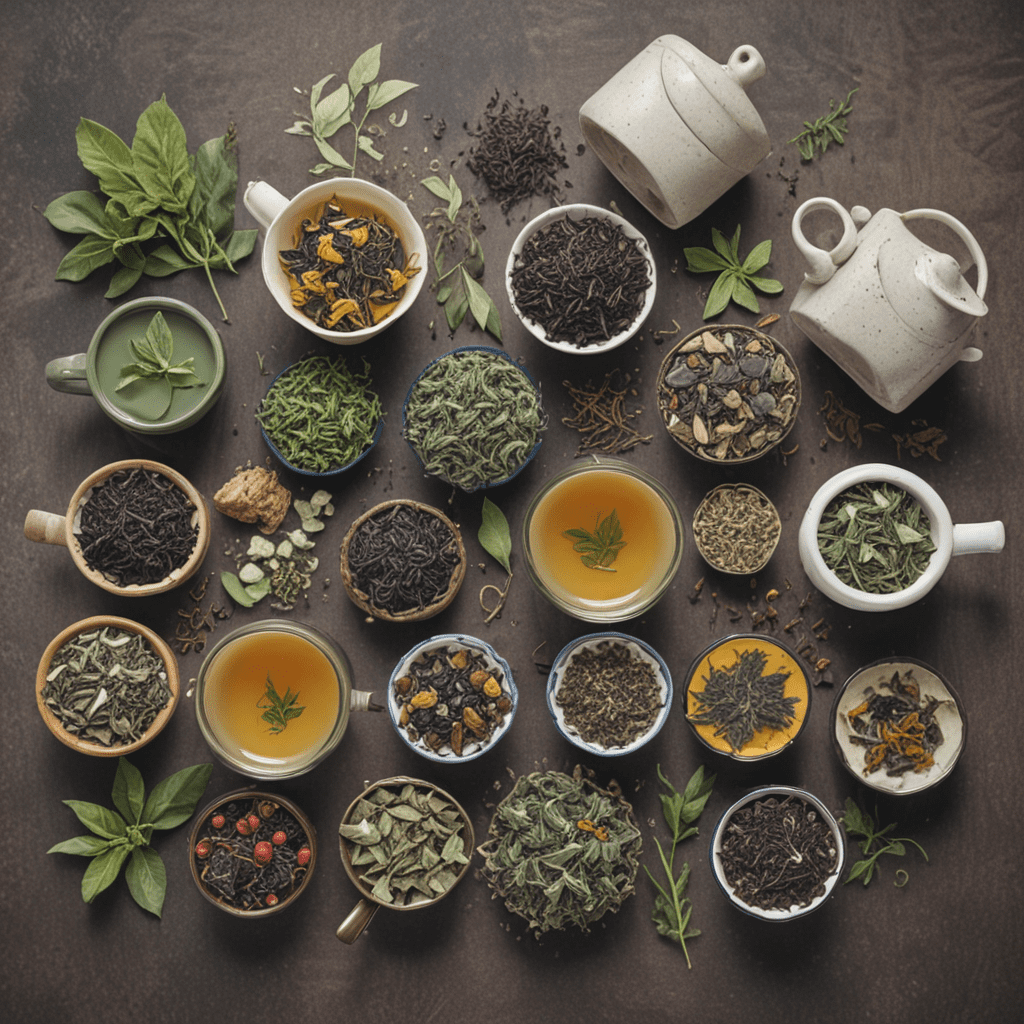
Introduction:
Stress, a prevalent issue in today's fast-paced world, can have detrimental effects on our well-being. It can manifest as physical tension, mental exhaustion, and impaired cognitive function, disrupting our daily lives. Seeking natural and effective ways to manage stress is crucial for maintaining optimal health. Herbal teas have emerged as a popular alternative to pharmaceutical remedies, offering a gentle yet effective approach to stress reduction.
Chamomile:
Chamomile, renowned for its calming properties, has been used for centuries to promote relaxation and combat sleep disturbances. Scientific research supports its soothing effects, attributing them to the presence of flavonoids, particularly apigenin. These compounds bind to specific receptors in the brain, inducing a calming effect that helps reduce anxiety and improve sleep quality. Brewing a cup of chamomile tea before bedtime or during stressful moments can provide a sense of tranquility and aid in unwinding.
Lavender:
Lavender, another popular herb for stress management, possesses relaxing and anti-anxiety properties. Its calming effects are linked to its active compound, linalool, which has been shown to promote relaxation and reduce stress-related symptoms. Combining lavender with chamomile in a tea blend enhances their calming effects, creating a synergistic blend that effectively promotes tranquility.
Valerian Root:
Valerian root, known for its sedative properties, has been traditionally used as a sleep aid. Recent studies have explored its potential for stress reduction, suggesting that it may help alleviate anxiety and improve sleep quality. However, due to its potential for side effects, such as drowsiness and nausea, it is essential to consult with a healthcare professional before consuming valerian root tea.
Lemon Balm:
Lemon balm, a member of the mint family, is gaining recognition for its calming and uplifting properties. Its active compounds, including rosmarinic acid and eugenol, have been shown to reduce stress and anxiety levels. Consuming lemon balm tea or incorporating it into relaxation rituals, such as meditation or yoga, can promote a sense of peace and well-being.
Ashwagandha:
Ashwagandha, an adaptogenic herb, helps regulate the body's response to stress. Its active compounds, including Withaferin A, have been shown to reduce anxiety and improve mood. Combining ashwagandha with other calming herbs, such as chamomile or lavender, can enhance its stress-relieving effects.
Passionflower:
Passionflower possesses mild sedative properties and is often used as a calming agent. Its alkaloids, such as harmine and harmol, have been found to reduce anxiety and improve sleep quality. Passionflower tea can be enjoyed before bedtime or during stressful situations to promote relaxation.
Holy Basil (Tulsi):
Holy basil, an adaptogenic herb revered in Ayurvedic medicine, has calming and stress-reducing properties. Its active compounds, including ursolic acid, have been shown to reduce anxiety and improve cognitive function. Integrating holy basil into herbal tea blends for stress management can enhance their overall effectiveness.
Kava Kava:
Kava kava, a traditional Pacific Island herb, has strong sedative effects. Its active compounds, kavalactones, have been shown to reduce anxiety and improve sleep quality. However, due to potential liver toxicity concerns, responsible use and adherence to dosage recommendations are essential. It is crucial to consult with a healthcare professional before consuming kava kava tea.
FAQ:
Q: How often can I drink herbal teas for stress relief?
A: Most herbal teas are safe for daily consumption. However, it is essential to follow the recommended dosage instructions and consult with a healthcare professional if you have any underlying health conditions.
Q: Can I combine different herbal teas for enhanced effects?
A: Yes, combining certain herbs can enhance their calming effects. For example, chamomile and lavender complement each other, while ashwagandha can be added to blends to enhance their adaptogenic properties.
Q: What is the best time to drink herbal teas for stress relief?
A: Consuming herbal teas before bedtime or during stressful situations can be beneficial. The calming effects of these teas can aid in relaxation and stress reduction.
Q: Are there any side effects associated with herbal teas for stress relief?
A: Most herbal teas are generally safe, but some may have mild side effects. For instance, valerian root can cause drowsiness, while kava kava should be used with caution due to potential liver toxicity concerns.
Q: Where can I purchase herbal teas for stress relief?
A: Herbal teas are widely available at health food stores, online retailers, and supermarkets. Look for reputable brands that provide quality and organic ingredients.


